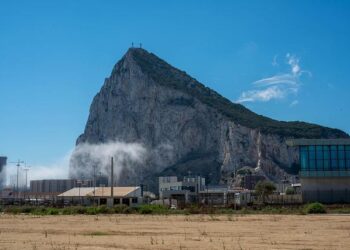Dispute Arises Over Athlete Recruitment Practices Ahead of the Small Nations Games
A heated controversy has emerged between two European microstates as Luxembourg accuses Malta of employing questionable tactics by “buying” athletes to bolster its team for the upcoming Small Nations Games. This allegation not only challenges the ideals of fair competition but also brings to light complex ethical questions about national representation and recruitment strategies in international sporting events that aim to promote camaraderie and athletic distinction among smaller nations.
Luxembourg Raises Ethical Concerns Regarding MaltaŌĆÖs Athlete Acquisition
Officials from Luxembourg have publicly criticized Malta, alleging that financial incentives are being used to recruit athletes who lack authentic connections with the country. These claims have stirred intense debate, suggesting such practices undermine meritocracy by favoring monetary power over genuine talent cultivation. Considering many participating small states operate under tight budget constraints, this approach risks creating an uneven playing field that could erode mutual respect and fairness among competitors.
The core issues at stake include:
- Unequal Competition: Financially driven athlete recruitment may eclipse traditional merit-based selection systems.
- Questionable National Representation: Doubts arise whether recruited athletes truly embody their nationŌĆÖs identity or serve strategic interests alone.
- Potential Damage to Reputation: Persistent allegations could tarnish MaltaŌĆÖs image within international sports communities over time.
The Wider Implications for Equity in International Sporting Events
This dispute has sparked a broader dialogue on how recruitment methods impact fairness, especially in competitions involving smaller countries where fostering local talent and community pride is vital. The notion of ŌĆ£buyingŌĆØ athletes challenges fundamental values like sportsmanship, equality, and national allegiance by shifting focus away from nurturing homegrown competitors toward leveraging financial resources.
The consequences for the sporting landscape might include:
- Deteriorating Relations Among Competitors: Growing mistrust could strain cooperation within regional sports organizations.
- Evolving Approaches to Talent Development: Grassroots programs risk being sidelined as aggressive recruitment fueled by funding becomes prioritized over athlete potential.
- The Need for Regulatory Updates: Sports governing bodies may consider implementing stricter eligibility rules or transparency requirements aimed at safeguarding event integrityŌĆösimilar measures were recently adopted by UEFA amid rising concerns about nationality criteria in football squads.
If these issues remain unresolved, fan engagement might wane, diminishing enthusiasm for events designed as celebrations of unity among small nations. Comparable controversies surfaced during last yearŌĆÖs Island Games (2023), where debates around naturalized players prompted calls for clearer nationality guidelines across multi-sport tournaments worldwide.
Toward Transparency: Building Trust Between Luxembourg and Malta
This conflict presents an opportunity for both countries to lead through openness and cooperation focused on maintaining ethical standards within their athletic communities. Establishing joint oversight frameworks can promote accountability while fostering mutual understanding ahead of competition day.
A number of actionable measures can be introduced promptly to reinforce integrity throughout athlete selection processes including but not limited to:
- Create bilateral committees responsible for monitoring recruitment activities alongside sponsorship agreements related to team assembly;
- Cultivate clear public eligibility criteria based on factors such as residency duration or cultural ties;
- Implement regular audits with transparent reporting detailing funding sources supporting athletic programs;
An inclusive strategy engaging local stakeholdersŌĆöathletes, coaches, supportersŌĆöcan further enhance transparency efforts by encouraging open conversations centered around principles like fairness and national pride. Educational campaigns targeting officials and participants alike will nurture a collective commitment toward ethical behavior beyond mere rule compliance.
| Integrity Initiative | Objective & Description |
|---|---|
| Athlete Ethics Charter | Defines expected conduct standards ensuring respectful interactions among all competition participants.< /td > |
| Annual Transparency Reports | Comprehensive disclosures covering financial backers along with detailed accounts regarding player acquisitions.< /td > |
| Community Dialogue Forums | Facilitate interactive sessions inviting feedback from diverse groups invested in upholding sport ethics.< /td > |
Learnt Insights & Future Directions┬Āfor Small Nations Sportmanship┬Ā┬Ā
The ongoing dispute between Luxembourg and Malta underscores how crucial it is to protect fairnessŌĆönot only preserving competitive balance but also honoring cultural identities embedded within international events like the Small Nations Games. As preparations advance under close observation from global entitiesŌĆöincluding UEFA which recently revised its eligibility policiesŌĆöthe coming weeks will be decisive in shaping perceptions surrounding authenticity versus opportunism when representing oneŌĆÖs homeland through sport participation.
A resolution grounded in transparency and collaboration rather than confrontation can rebuild trust among fans while establishing positive precedents applicable across similar contests globally. Ultimately,a genuine commitment toward equitable involvement must prevail if these games are truly intended as celebrations uniting diverse nations through athletic endeavor rather than breeding division fueled solely by controversy.















